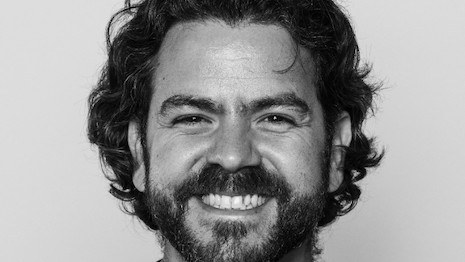By Marcelo Reis Melo
Luxury fashion has always stood for human creativity, tradition, and top-notch craftsmanship.
This industry leads the way in setting trends, with creative directors and artists at the forefront. As trendsetters, the fashion industry leans heavily on the human touch—from designers to craftsmen.
It’s this human element that really adds value to luxury goods, making them truly exclusive.
AI vs. The Human Touch
The question is: How does AI fit into a scene dominated by human craft? And more importantly, what can AI do for the luxury fashion industry?
My team and I at Feels Like Studio have dived deep into AI's potential; only a few AI creations manage to make long-lasting impressions, almost none stick in people's minds and hearts.
Why? Because AI, when used without artistic vision or the human touch, produces work that's beautiful but soulless – it needs that human element to truly thrive.
How much do we value creations by humans versus machines? In the music industry, for example, this is quite obvious.
We love the lyrics because we can relate to the stories as humans, and we love the rhythm because it taps into something primal within us. Sure, algorithms can replicate this, but it’s personalities like Elvis or The Beatles that elevate what we feel about music.
Their personas add to our love for their creations. It's often hard to separate our admiration for their human qualities from our enjoyment of their songs.
Maybe it’s the perfect mix of both—an exceptionally high-quality piece of work and the fact it was made by someone flesh and bone—that makes creations so special. It's no different in luxury fashion today, where creative directors from big fashion houses are followed like rock stars.
The human element is crucial in giving something valuable and relatable. We need to relate to something to truly like it, and this seems hard to change.
In the luxury fashion industry, the key is how we use AI, balancing tradition with innovation, leveraging AI while preserving the artistry that defines the brand's creative vision. The atelier is still very much hand and brain-focused, but the revolution is definitely in how brands communicate with their consumers.
It’s undeniable—we live in a world made of software, and almost all brand communication and relationship-building with audiences happen through our computers and phones. This is where the majority of a fashion brand's communications take place, where brands build their world for their consumers.
AI is set to redefine how computers interpret data and user inputs in this messy, disorganized world of bad data. AI brings more intuitive data analysis to our world.
For example, searching for trousers today might just give you a list of trousers; tomorrow, it could offer personalized, context-rich recommendations based on where you'll wear them.
If the computer is smarter, you won’t just search for trousers; you'll search for trousers for a birthday party in New York and get good recommendations with context, analyzing how fancy the birthday is, how warm it will be in New York at that time of the year, and suggest the perfect choice. This isn’t just a shift; it’s a revolution in design and user experience.
The Future Of Fashion
How can we leverage AI to rethink design and trends, enhance craftsmanship, and personalize luxury in ways we never imagined?
Some brands are starting to scratch the surface of these new possibilities. Gucci has merged AI with human creativity to predict trends and design collections that resonate with customer preferences.
LVMH has a dedicated AI team; they're pushing the boundaries of creativity, innovation, and efficiency in customer experience, product design and marketing, without losing the human essence central to their maisons.
The challenge is real: bridging the human-technology gap. But this is where magic happens. Technology and human creativity can coalesce, creating immersive, fun, and highly tailored brand experiences.
Of course, the integration of AI in luxury fashion isn’t without its controversies. Concerns about originality and legality are valid.
So yes, AI as a buzzword can feel like hype, and maybe like all hypes, it might one day vanish from our discussions, but it’s undeniable that it will be a fundamental tool for brands moving forward. Luxury fashion will leverage this technology to transform a product-focused world into an experience-driven one.
It won’t just be about fancy items; AI is creating personalized, immersive experiences by understanding emotions and predicting desires, acting as a digital concierge, and creating exclusive experiences at scale.
It's all about how we create a more memorable and unique full experience with the users. This is where the value of a thriving luxury business lies—how they can create unique personal experiences that continue to enhance their brand equity and appeal.
High-end brands are just starting to explore the tip of the iceberg of AI capabilities, and there are many directions to be taken, like enhancing sustainability by optimizing supply chains and ensuring ethical sourcing.
In craftsmanship, AI blends human skill with digital precision, pushing design boundaries. Ultimately, AI challenges traditional luxury, blending tradition with innovation to create deeply resonant, elevated experiences.
If your brand hasn't started to question everything they do online with the advent of AI, now is probably a good time to start. This is a moment of shift and the brands that lead it will be the ones most prepared.
{"ct":"i5UxYa59lRSQ8\/IL2h1adohshyQb+goDMub5kw\/2LSrBPA6wPOhOeG4oZibrJSk9T8NEv9buoMh7KS1a424CQ4WGvHN0g9b5H+VYcLwB90uavCRo\/PG+G3PSWSLb6Rhm62L5Dn0vLkM7JQOHCAkLwxyo1+yUO3WdzY243byptgwJoAo9MIeVuF+pZ+m3VoP+KlNi\/bB9n+J+3e9+sDG1mWYoV9qZr75zP6oPMmZHgTt2+x0kvvBL7YhhLIp6CzJts95JFgycdovd3265024JEvhnrc2BPS++oQ3zFp6lirePabCbMtb0H\/z73Y3c5luIKHzDAxUwCSNkRE2+bnsHti1gm\/yXdH02YitGuBNsu3pwDuISY8SP6wWgzxT4FL1yAThdYvPrOR0TaWkZ8fdpvlZ3\/giy3R588C6+6kqG229lYpSpr7iKsFoMy8WgXNDQ1D26HWIabm654X2ddnM9EwsdBZHKQrzJlpMChUL3a0bozdU97ilLSpVrmoU2kHiqkK1H42BXqyCJ3ag2LdVBkNRQVbJ9uDu8fTF2R3GIW3gGj7aNoFG\/4dMo15ZnSogGPwo1CIfF4Z+1piPjgWJeJjk0yRVAxUa9J5cTn1SFNmwSSA28YGWLU82oX4\/eQXJvjGVLz8Qk+k6kLpoCPrE1exL4hS1XB+6gkLn\/LfncB0QaX98aFV1KeZYDfqXGx3VReka3aAMNCocOvWlgy+\/k56t+qPjQLJpoolCTZvk1ll8rVb\/ZnKww2OSaWHSa2laoQdh9wmJCgObYxKc59dFDlGPkdOpmIZr4GR2YYHlN4wQMTKKBXh5B\/WfDKX11K0t7Xj5ZJP0o+eGolwQKZaIN0w4lzOgJq6Kqj2KqvDDaecK0ZV17AA\/VZHGlPtFYaykvc1QN3QBhnk7CgTyKTStvgs6sgCyD96qk+FDEZOKAPnWBOjJfLe6zIiET2Y26tGvrvETABfReWQMtUXXeih6tqZxDX7Lb7gRJ4lFXGrOSzl6CTZt7h4f1b7LtSf5hYUucNBiLriD56d8jE1LhZ7I1V0boNAqmRJvdrWoaYxYvAcC+HNRee\/chvCjj+WQPlGX4eSupWdZpPbqvKFXsj0hNszxBEPG2qYw+zISHB3CUWV6fR1B77zL5FQKL2wt4xZ0WtvNLlRCavKdy0vp\/WWyql9tGBcftHICHZ7HOEx28YyEt16Wo+pudaVnK5B5uw+oRyFTvJgcQYFgXu0WnoZEu3TcFyMoFHSHv+HMTAlI3Zqt9P7WIxb3jYOePE30eYjw8eqa+Y4WeAym6DYWDaQmU\/wKjuMs7CJNqB0jAoXNwKbz231naZM6pDUTk8iJYAJqxvfpxUkSppH5i+MbffM4jXhxvMeBTbp1Lx9EealYPh1mfCcaNnBZdvVEcPXjw4tW8mOCcCcMRlCwzt14XGmruGTfF\/CXkuUkHcpTwJxzcF0EQgPXv3kkPVC6KILFjgXYH5TiV7MH14auoUVw6nXrXOnAQMh0SFQmdmJtXFQW8FPsai9vMwjxqWiDQb3p0blCw2Cx0SFIBX3qJWlxqbUKb+3iqL49HlriX2lI56sQkm1puF0blhSlyGNElPR2Wky9G\/wij\/jO1\/s6lsRt2kC97oLt4XiV7D4yHHY5F8fPZ9glNoRZvstm1xX9ALN07Y5BcT5OIV0cR3D1LmTrb8YtoSboDw3ud84nGTnhuqEm0gsV\/vx3eYYckhVe8\/z6b9H23OeF094cjbU7UPS76UiV7hDecJAjyjb8dTj+mkXDFS0Rc1Fsae8lU6avAc0ZQ0VA8OYBZ3own29rbE\/MLhRq\/I6jt6e\/jP0BiOVhJDAv+CKLDePJzeNvNt8OtWCblz7AONlJUM5Xid+cHj21FQq1HvUZxuUgkZjB1s2unHc6BeuZexHxyBmDVKhbbeaZvUAGgkqnfZPqF3pXhH\/uTVvoBUpY6aVL+T16uIB7ldh4fftq6QZcNwpzqxsbIRVmKWFZMsLbH\/4LzagaZvmSMYb4QKwy1ah1OJjM7we1YZN1lAAFbzE4234ttxGP89RLUf3u4xxrATks4wPLVLav60xM+KUJ9+lmwjGZXqs2xnUgRULgdxnxu3QL7jWdGUGmbw64jhxsou4kVbMGGCqPJDzFb93l0ejr28Z8dKBRXEk4qO4mg47vTUDBNcTMPPgs3sFbFrm8wds1aGDGe++qAv17NVxmJes\/GuMDH38UzpupUq2meUObxWfbcZtYb6\/Uwhc1hf35APGuMqOLLnrGdv+R7Tyc3NlNBAJQI2+YW48ATo8yELGMpdp12pgsYUnQBspuWeBw5NxCSUwKNjnBZeKiWj8nPT3SdRF8nhT7BMrHBZMUEVfo3y0g0Ii4k1Epv\/g+JneX0IPBuTtA6hgbIw2YjtxdbNk5uwOYS7pndujisxigxsCIV+6Bc6z5SmJu2YpHwWvkoss\/Iiiiphu22Yk64IarbfiGJUeKgaWv6w7dESnyNZ0st1UVy8XDhmVxElvYDGAv4B0V++2zS5bBgF4QIDh01VtNct\/DUF3DT56F7E1plL6Aa77tThEvfW5asfaDCygrLe0caxUJBNBE1af7XenCaPXIF17csvvx4PgsahIlf\/FrpCWG45Bgc\/YAHS4cnt9RTngyrlXiXMblspAcCnKWH3CUw8CcFHHq2Z2KTRnXYFLvMV9zI63KaOyTvWp2zuI0G1wBmMC8PkmpbrtU5ywSYPiQfCnwUrUfq8jo98kkhfIsbmhYYqvMSPsc59qoQz1+P6bz\/cQPYo+hji+FIFaSKIH+G+rFCMaTJQlkT\/yeUNwMEsaKBZtePckaHlpQKYZePLM3KLveLsBm8rsuB6yMVt9N7q\/nKPSm7VtyFDmU9guHQfLb5BPwk3sljdRts7GI7wOaA+85QRO+bUiykyZqaegawTqCmdMduacSf9iSpanp6fjkl0PwS3JManOdtnL9l\/Cy4ggtW0jtEKdOB03dN4FxH1ngeMbjvjNnNuMnK4grTagbRBXMWBhLyEY2ZUsPs215f5QG6CaU6SOySE9jnf2NAQ4zszYcNy98vHkp6HiiPEU8BYCyxqOxXTlvN2ChBO8jlYy6dOnZDfl0qUMezbs1PJu2QgIP0+9O0Vpty7pMbWQLBmHRYsBScEMiyYN66eQjXckp3wPGUkNpIjVnw6wiJfE02bU74G7M6olDNEHnwVRP44URzgLZyNFVU9EyTgpdiAnMYrpY4x5xN\/gBkhrK4O9uJC8XrZ0ysk0JRqixsvCDt1m2aDAJy48hWwxcUbk\/GUTr+aG7HxkUs0uy3ntqJT2IerkhebEA+T0y6Ex9diCpNN+D4y2rTRJcMAvUT3xp15agI3ukW9SwXAm+InrOWzBTboZgfu7+p\/eg040mB82muAUbwnPHNhSVi0rYeCGNHTXJBV0gg\/T67HQ0zNtlbBmpiqtvK1LtpGPF9+PUrIY0LZ\/onswRtPsd971w+qh\/rDajGF3+9gvnn9jVVkXtZEQ5bY0XFpCh2C8\/JnfV1IpYXzDhwq9EJonFu3NB9KligctbeXN1FuPmM94zC\/iSmJ6OWWlPHobnc3jcKl7l9Nmiwl+\/EgqGwLiMBtS3bfMCN1Anv1g2Gj2cucwUAoru8qKT5EqIB2d6g7ySXWtrWYrqu6jGx\/d+HvlNsjIhqSJ7LoeOJmS+1o7Jx4tW\/ZKUBp0xFr+3F9ILeNlD+08qQit5RCuTjbahsxklA8qaAMMYrCaVPPZX+NBtkxAf96GI78SeXK06u1912W69NGp2H0YA7cXbpHK9JEmbexcoQPru80rUtyspNQ8MPnOlpqPpCDsfTVpzHgk6fn+5lDWO7rn8rQCoi6K+1HAgNdf8qZUXAfN2OH3Ed2C1Ejr6BhvYgw8KwNq6dcOOZY4eRSn4+ZzymHB+prXmcPRLp90ZTTPpcpu9ngKPRJjE87JHuJE93g9Esi\/H63Yx7uUe9gA9ZLuQsb\/b7HDJF3N\/xWXX2WeG4Uo1cKuPo7ceLIVdsKmmq9vRWBiXl2moWoN6Jl9BqgJm6bi4bLfsB0tl3Gm7MLtSRTpGUmaSPt0KkyekpjYbPHeJWlqAKGm\/MlTCIAg6VwyJjRqd0+7U6pzm\/ZMfnJduG30XQq3sJeui\/2IKOz9MG+R6wqNjvqJkIMW2ToZXeS1lfdiyIp0mOPlS8Fn7tpwvHy2pcGg5m7pqu\/b\/kTs8MhIwF6HpP\/fpjXEwpPSBYtrJjm6UiuSBjisS5lEByC95KtsyvNCLA\/Jt6RiKEqQ9Obvs82csO4JSY\/oKv16gQnIR4tqQEglRrqbWwlZmILr4yc715YctOBNWUQd\/vtBTj9nsZ92YMM1GNm0H8xc\/DzFMm3a0fwv9TjwExtWzSst\/nK+xxfmObCfmmQNttWvUhfRetpi0jypCFspWW2dby5+zZ4Bapv+xYxyHZ3eGrZ1AM2iF3O+qhPf3egmx6dSyVCIjji8MZ1fI6OgVRcniLbrj4rl+nhmj79k1xSTvmKFGncmZFuA0U3eFdHsW6OCR\/9Gc9lhu8SrGnOzQ+VYzRYvqXjtsvhRfY\/xs6rDR0SU6Dbf1g0YueM1iwUDsPDyrFXGiiFciN\/tbbKC2w4nwfZcNF8Ze7fCXFDxlBhwXLjflP4hH8yz\/Pa358y\/hKEJ93H0J7pQ7+DfsbfA7Dj7D2DsSog\/8IkWwBZGaxGlNCtxOgjRhE0zGZtok6KIDIDQXnYNNqrFz9wqQB7PAVw2cvZRm6H4ApSqhrJRcYTMht4gsy6xbOsJZYt2hvCjdZgOZF5vwRmnKc1XjHapchFz9E3Gt\/pZBrvT\/fQCieQwznUrHdCmwI3DxKQywFJEhyfRR65Qy+PAIy+Lu7wH6JgH1daNSuBXeqnwgg4EZUKNJaPYwO7ToCBbtjsXjTti3jTd6AVy8PHGiFtVwFbpk94P2TFSw2wLYa58K4Hq\/nM9a7O5iVUfUUKo61d7GUwL1DjqzD7AUvNpj6HXc0mxXWudnYKgMwNQ00mRf10lK1ZfVV1w4NQjXq4q1m8MYeOPHRblDFTecRm7OeJ8YuU3QP6T8Xm2b83ZW68iSs9Lyop0OamuU4+dH6WABgFWHaSq+jWFW1\/\/x+Bay0+dvkfN9vVCy00AYlD0evLLgyr6BKBX3ovK2AmAiwc0JrGKrBBNQT98jk+IB1v55RkEjWT1lIgti1AZHqe3BNzKRVMwlyFWNXeMwEdV9uCzui8BoserZ50sdxGi35b5oo+On21lMBawJ9iO5QR5hg\/Z3jp7vl9iwuVifKyvRBkkXUY5alH+bzg\/jnLVkkkgvznrCfaxAewO5MollUkRznICoq6rZhwesvYJUv6jzW6eAghFoIFT\/X3+KTemDRuDVQgP\/JeqvAfaBrKVTxzcNOekkvoRoxxe8VLAWDB1r1OghFgp0+unFF4Ag9bAgOT1mCLXLlQ5OyA5S3dsCz7amjYjk\/9e4AwyPgu0XdKNx\/w0ly\/uqGtT7NppZRKxeqTpIX7UN8RlXNAdLejyupzQGiA8IPEhbsMaE+uLb34YPF8FmZ10EDdoHGA\/ajFN7nvo7wxsNqqv8CxFsxc7qeW2lCogxod6rCqTqdLo7gXaV8WipCWhvztg05W84m1kMgedXX2m3W5wvHUvSXxOc9WKgdaWci6R\/yNhdlyB+yU3D40tVmr5hl0JuHsfnoXFSUC3dUwpAUhOikRglR78tyq2xMZDEadDT\/BZVuwcHMLTdhq9CKndf22q4U5zqvLYc7TOPXmLiOlH639OIXybNXNRE2ATH9KJciadONgDjb6ODwCMGfNag8QmnndKXJvQrYxfZBps0VCxY5U13p87\/JL6f0doNC\/yf3uvLVtipIWOBxtpA\/3tQkyjYFub7F3dj1EqcpkKgso9siyDbUuUq41FgJwXWsAZIrrPs7HKP5AGJs0ugLUM85myXqBq7g9pcSsiBg+zgOJxrditCUNIIuIJnAZvYlmda6IHABwvfw4ppFyX6GNddAtdW4sWKuoSaR229WjocViurXivWfe\/85u5+QZ2HqDmkj8U7BfCa\/6XZBLAypJ+C6oU2lnXtANh+fpIWhhxDVyiyG6YF9GrRKfVrsdqH2byGoamVjj6Sxgv3zU6rI8sD93Fe\/\/3tgtbDxJNYRm+4q17XlXR3rHN4oK5WaMtXk2oK3BcgtILtrP5eA7ttgi2\/moMz5tAqq\/5ZZZjTJuOuQlBqlbak5gikLj+bFD3SaTQNHEOO0s4rIGH\/WWicJl\/09zwIaY2ab2gFC0ccLOieUZxvaCxbVslT0HGpnJ6Zq7zyjU3bbItf\/cnuF+ms3YpjtljA6uT+Dgs\/0mtyGwuJJ\/wlnBKx7MUHa0yBUfNXTShRoGuuqFNNZYVbaSm0NdNqL4WNfX6jCcsDJgHgf49zat6fpIXNYUGlHiCqAZ01TReC0svSxTNjUe\/8gSa5cVRDF\/GGCLn1vOrsbvhvlG6CmPeJQnLPBWM8+roxbicT6wuvlzCqvDRTCfaeTtKvcn2IuaAPVSNDHGLSxU4LYNnunKan\/bJP3M9QjF3+0Qjbrck9QLlg22W9O0uB4xOlDgrX58CRXOuet3QrJMFdAL5BDHm+HpfSXyFoPK9JHrVn06GEcNPulH8iMQt+EpdPNA+l2B9kL0dOoFhQMe1UtNzBhzP2YGWCuJI25ewSdrmehj\/AH4Of6y1I1g7XI6gokW4HB+ruiH5RJqpNDmjSRYuWnLeCP9sO2NWYfkkzvnaYUJZBKN86BxkS20ku2HaJ7VAUxoqelrjOMAecISwQK6scrMgpN4rAGAijaK7q5EIzIvBcSrxm11qgF9gFpglLpwV2\/kVg+fD5zB1jdhiZHjfkSeLgULWVVm1hDYGZ6SZRs06Ym7yIIiKgg9xbeVVULllm14jT+8leSGKlfnDkNvg9j\/qFLKdbMJ+5nCW3Zi4uhp7lQ15iAqDm+knrkd0jHuH73Kt5icI4FP2ctUW\/QiM0ymX4kEzQDKIbPtqYzJdY\/yvlFlvnM+rV07A4qjvGqRT3nxSY7NiGS2PdQKyRmDwa0Mc+aoEDSbiagqfa0EyavDYDo1z\/NOzGZmH4IlmYV\/ikVeig2cqzmRvmaer7PguTGQowWqz6kIDA1fdVlOsmMiegVFYH6LyxgUYMkgbkPYx\/ppzfeVHls3T6Sys+TjR3fGfTwsSeh2VD7Uw1shVY\/q7DeW9K3xXvIW+9nF20Ffz8X2DrLLj2cxrWJDXPY1lxo2eiDuwMY+fFfw8T+j5pb0VKqyBVK\/Fu7O2DzzLagCQMsR8tj0VFPTDdk9fFz7bgNQeiLLD\/nIIsjbK4u8kaDWyqD7lFjvakUlxGP\/mZqOyPH22IHIjKMr3nf4VnWKwPZYPUHwxqTPi4+GYJLG3z35cdDc4JcG\/8yg1zDDFpQr3O1ZSIbgm9vXzh1g+Y0qZeKNgwUWeD78QencO3YP8TVANOpiNNJuFlKdBCjkels4ZW+XpDvwVc4NhCX1pwRTFtZODxIMOcbDi+3gy8DCqN6xGnwTg1Z9idHuS1HxVLtiamwfNowX3pWIraglZYBiWjteCaR1PTaFSicB8dCJ6aZbgcw\/wqLNcmZ1nntQybzvhwcwOus4EWaYuArEgCHFe9ChHFVnJwJLTmSovzKtdeS4lgTNiCe8KUOQ6sPE59ICI+enSbSn0VMPdUd3MYfTSIre9J+d4WPDHqLG0fUQxVgSIB6KKPPUdRumfaZrVkzDTHrdRo0N3hha+Vd3b4qYfGCCmU7vtJg4jxGs1lcKZ1g1Q2BFY890q82T1lDc1Za\/cQiGen05Ht9z7if3dbZKp7ds\/IzgEcP9SK6+YtZuC7VKLBdm3wv0UpxJ5KuJlY1wVYmiXx+7rniucVobUMGYpVGtCVFuh\/FwykjCLJQYm\/U4+YfK0Q6iaz3I7w3O4Z7HnbYfPMA2Ds\/U6X\/ySKe30RiBf28LVED+khmqpW8GL2prxSbt0WLNfvJUhdxC7mROuHZZindk0VUJijs5Cy330DZy3MCtjBnwOPIRFukwWhnfFd8cQP7MkhJbWGQm2mzogXAKexfvMs5+IMsNNd\/rsrzCFs9c+Nl26I1VQmwWFtxJL3xTsKDA1R4UKhw8W4hHh\/0ZqoIJsAKgzb07q0Xw4BEi\/mMfkXvI3YlqYI7X3GRUoka+pp65qsPNQwS5TPIoNSltVmvhDT5Hp0BNc9w0qW0oyeXZM+8iXL2Jl71vJHbQ32KcFMKiZgLRr3f7v5LKgqyGQMTkuhPAspQIjOnCv87BIw=","iv":"e62be1654156a4be0e287bca1957ebb9","s":"d79e4af79586d076"}

 Marcelo Reis Melo is global executive creative director at Barcelona-based design firm Feels Like Studio
Marcelo Reis Melo is global executive creative director at Barcelona-based design firm Feels Like Studio